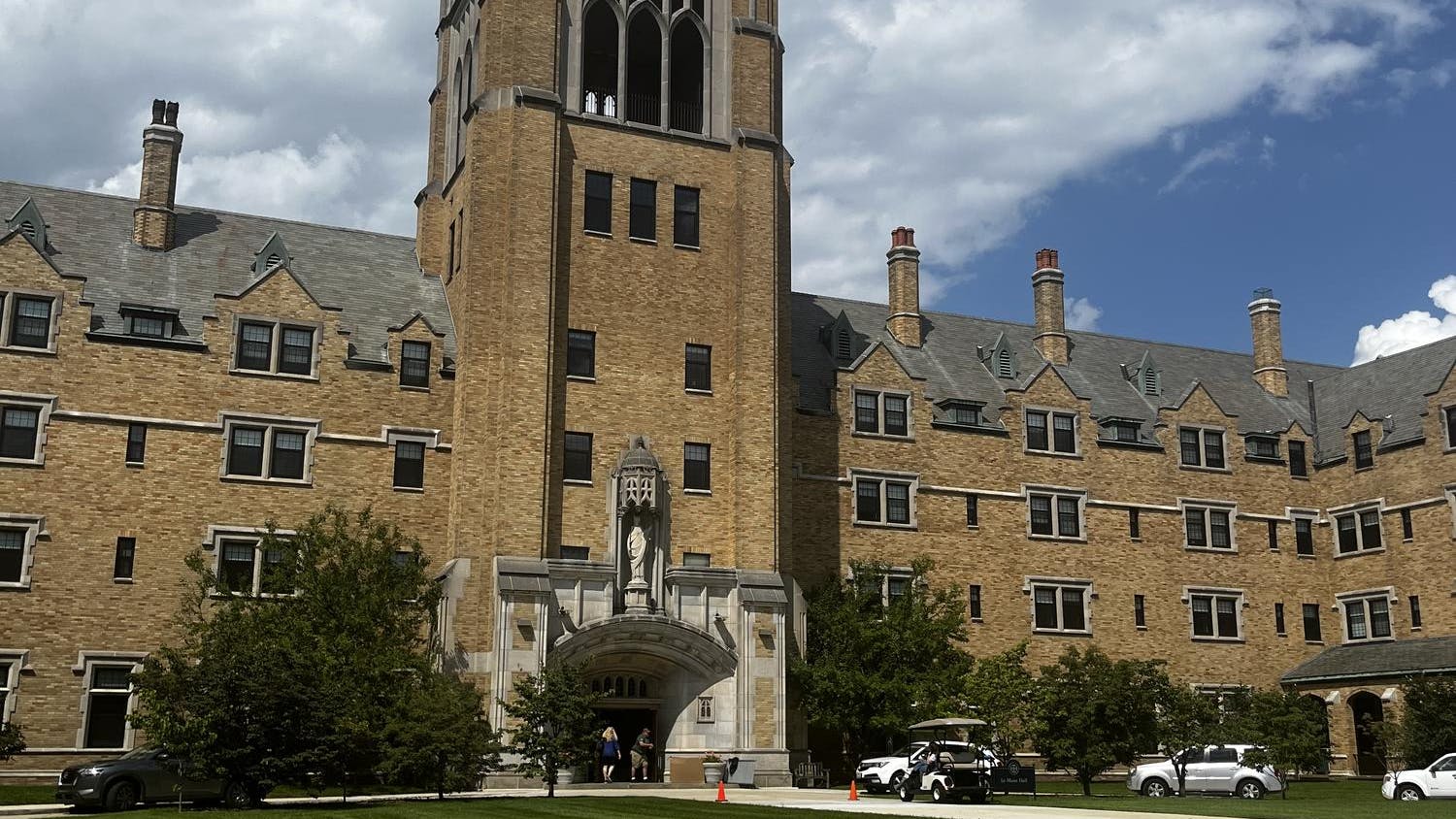Questions about the legal process involved with underage drinking sparked student interest during the "State of Arrest" open panel discussion Monday evening.
Representatives from the Office of Residence Life and Housing (ORLH), the Notre Dame Security Police (NDSP), the South Bend Police Department (SBPD), the Indiana State Excise Police, the St. Joseph County prosecutor's office and a defense attorney from the public defendant's office participated in the panel discussion.

"Today's panel discussion put a face on the people involved in issues that matter to students," student body president Catherine Soler said.
Morrissey Hall sponsored the discussion to give students background information on Indiana alcohol laws and the legal effects of drinking off campus, Morrissey assistant rector Josh Bennett said.
"Our mission is not to give students a hard time or to go out and see how many parties we can bust on a nightly basis," SBPD Captain Jeffrey Rynearson said. "Our mission is to protect the citizens of South Bend."
The best method to avoiding confrontation with police is to minimize noise because a noise complaint is typically what draws cops to a party, Rynearson said.
"We also advise that somebody at the party stays sober to deal with officials," Rynearson said.
When students at an off-campus party comply with police the entire process will go more smoothly for everyone, Rynearson said.

Communication can make the difference between a positive and negative direction, Rynearson said.
"It does not take Sherlock Holmes to figure out that being respectful to law enforcement is the best way to go," Deputy Prosecutor Eric Tamashasky said.
Students are not clear on when and how to refuse a breathalyzer when the test is requested by police, Soler said.
"You can exercise your right to refuse a portable breath test at a house party but you have to be willing to face the consequences that come with that," defense attorney Rudy Monterrosa said.
If police have sufficient reason to believe that a minor violated underage drinking laws, he or she can be arrested after refusing a portable breath test, Monterrosa said.
The panel also outlined the legal process after charges of minor consumption have been raised.
Representatives from the St. Joseph County prosecutor's office fielded questions about pretrial diversion as well as heading to court on charges of minor consumption.
Linda Scopelitis from the St. Joseph County prosecutor's office said pretrial diversion covers requirements like community service, paying fines and avoiding other legal trouble.
Failure to comply with all aspects of the program could send a student back to court, Scopelitis said.
"Please do not think this is like Monopoly and pretrial diversion is a ‘get out of jail free' card," Scopelitis said.
Monterrosa said students should also seek legal help from a lawyer during this process.
"The best advice I can give students is to not go through this without an attorney," Monterrosa said.
ORLH director Jeff Shoup said his office will help students connect to local attorneys should they be in need of legal advice.
The panel also provided students with information on the range of costs and fines dealing with underage drinking and legal action after charges of minor consumption.
"While we are not living in the prohibition era we are living in a country that says you cannot drink under the age of 21," Monterrosa said. "I think the best advice I can give you is not to drink until you are 21."
Soler said the discussion was a learning opportunity for students and will hopefully help students approach any future encounters with law enforcement safely.
"The discussion could have lasted four to five hours because there are so many questions to be asked," Soler said.
Sophomore Mike McCarty said the questions answered by the panel covered relevant topics.
"We live in a bubble," McCarty said. "This is a step in the right direction for understanding what goes on outside that."
The panel discussion ended a weekend of activities under the beND campaign, student government's effort to engage the student body with the South Bend community, Soler said.
The beND campaign is an umbrella for the more specific efforts, ranging from voter registration to community service to education on alcohol issues, to tie the student body to the community.
"We are very pleased with the reception of the student body to the events under beND and the general idea of being informed," Soler said.












